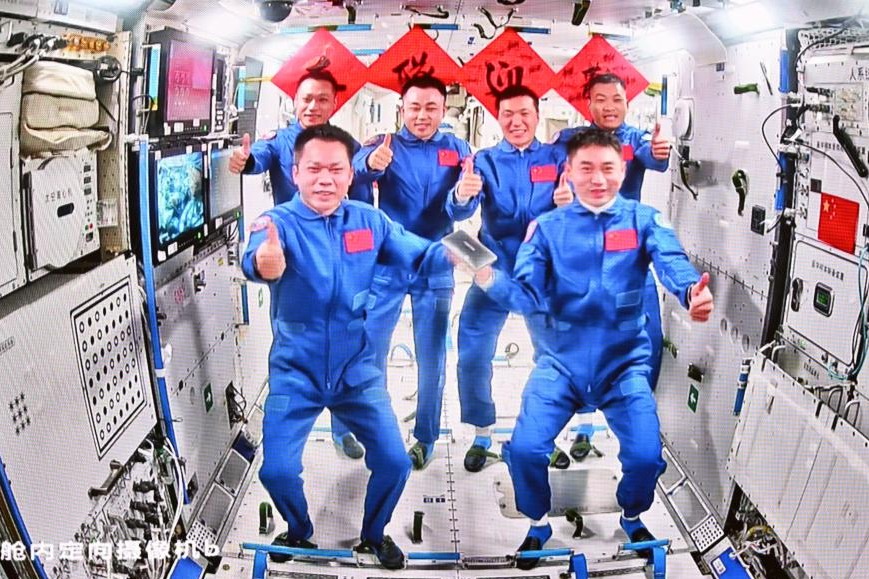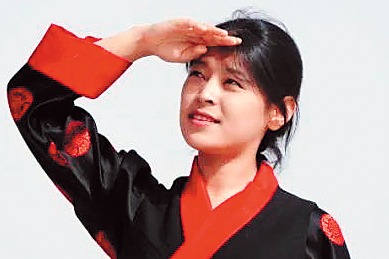Forum: Democracy takes many forms

Democracy is a value shared by the world, but it may take different forms due to the distinct developmental situations of various countries, senior politicians and experts said on Wednesday, expressing opposition to the creation of global ideological confrontations in the name of democracy.
They made the remarks at the third International Forum on Democracy: Shared Human Values, which was held by the Publicity Department of the Communist Party of China Central Committee and the State Council Information Office in Beijing, and attended by various former and senior officials and veteran scholars from around the world.
Li Shulei, head of the publicity department, said in a keynote speech that whether a country is considered democratic fundamentally depends on whether its people truly have the power to govern themselves.
"It's not only about what verbal promises people receive during elections but also about how many of those promises are fulfilled afterward," he said. "It's not just about what procedures and rules are established by the system and law, but also whether these systems and laws are truly implemented."
China practices "whole-process people's democracy", which is about making democracy present in all aspects such as economics, politics, culture, society and ecology, and through all stages including elections, consultations, decision-making, management and supervision, the senior official said.
As an example, he cited China's two sessions, the annual gatherings of the National People's Congress and the National Committee of Chinese People's Political Consultative Conference that were held earlier this month.
During the meetings, national lawmakers and political advisers proposed about 9,500 motions and nearly 6,000 suggestions covering all aspects of socioeconomic development, representing the voices of people from all walks of life.
Former Greek Foreign Affairs Minister George Katrougalos said that democracy, based on the people's trust, is a shared value worldwide, but its forms vary.
If a country is able to live in harmony with its neighbors, then the world needs to be able to accept the existence of its different systems, he said.
How democracy serves people is a major concern around the world, according to a global survey released by the Beijing-based Academy of Contemporary China and World Studies during the forum.
According to the survey, more than 90 percent of respondents worldwide believe that democracy should focus on solving the real problems of the people and agree that the democratic condition of a country should be judged by its own people.
The poll, focusing on China's democratic practices, received 9,200 responses from 23 major countries across the globe last year, including India, the United Kingdom, the United States, Egypt and New Zealand.
Over 95 percent of respondents believe that due to different national conditions and development stages, countries should choose democratic models and paths to modernization that are suitable for their own conditions.
Additionally, 94 percent of respondents recognized China's national governance capacity, marking the first time this proportion has exceeded 90 percent.
At the forum, participants also said that democracy should not create a barrier between nations, nor should it be used as a tool for negative political purposes.
Li, the publicity department head, said that China fully respects the efforts of exploring democracy by the vast majority of developing countries and fully respects the choice of their own paths by the peoples of all countries, but opposes the acts of "creating division, spreading prejudices and undermining peace in the name of democracy" in the international community.
Massimo D'Alema, the former prime minister of Italy, said that many in the West consider democracy a Western value and a banner wielded in opposition to other regions of the world.
However, he noted that because the pursuit of democracy in the West has been a long and unique historical process, such an approach cannot be exported or imposed on other parts of the world.
The ideological confrontation is not conducive to the exchange of civilizations, and it can only lead to opposition and rigidity, which would undermine human rights and democracy, said the former politician.
Abhisit Vejjajiva, former prime minister of Thailand, said that currently, there is no effective democratic global governance system, due to a lack of reform.
Now, many emerging countries and economies, such as those involved in the BRICS (Brazil, Russia, India, China and South Africa) economic bloc, have considerable influence on global affairs, but their representation in international organizations is still insufficient, he said.
He emphasized that it's time to alter such an imbalance, and that only by doing so can the international community become fairer and more democratic.
- Mainland to send support to earthquake-affected areas of Taiwan
- 3 dead in east China residential complex fire
- Risk of infectious illnesses over holiday warns China CDC
- China to honor outstanding workers ahead of Labor Day
- China's robotic spacecraft to be sent to the moon
- Harbin ramps up childcare services




































